Reading comprehension Multiplication Worksheets for 8-Year-Olds
8 filtered results
-
From - To
Enhance your child's math and reading prowess with our engaging "Reading Comprehension Multiplication Worksheets" tailored for 8-year-olds. These worksheets seamlessly combine multiplication practice with captivating reading exercises to foster dual skill development. Each worksheet challenges young minds to solve multiplication problems within the context of intriguing stories and passages, boosting both their math abilities and comprehension skills. Ideal for reinforcing classroom lessons or supplementary home practice, our worksheets are crafted to make learning fun and effective. Empower your 8-year-old to excel in math and reading with these carefully designed, educationally enriching activities!
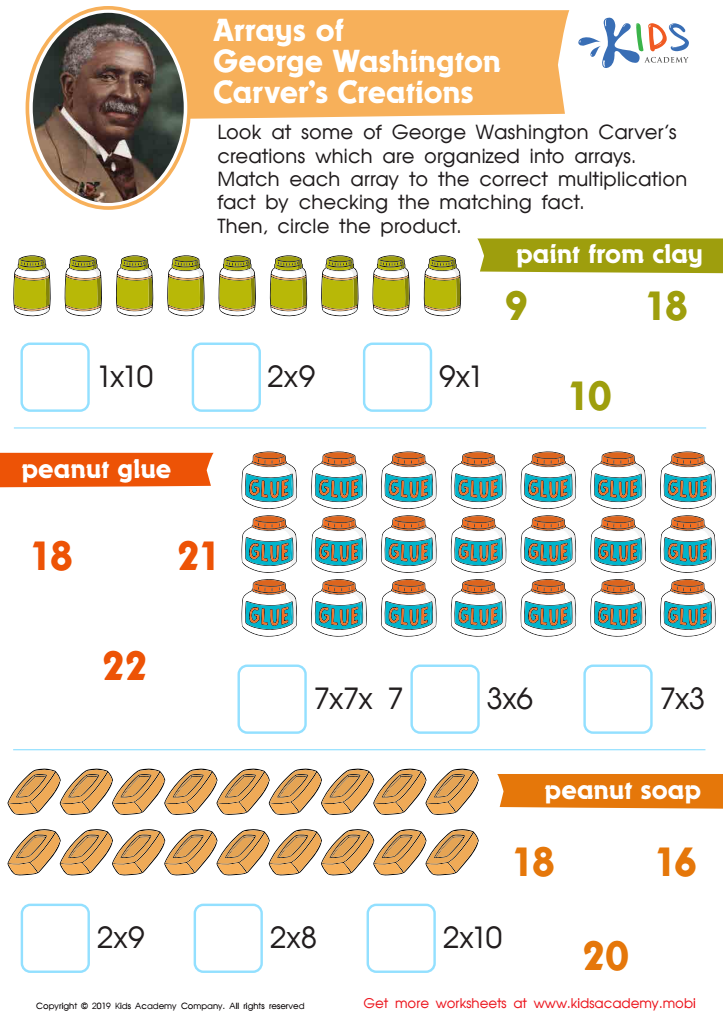

Arrays of George Washington Carver’s Creations Worksheet
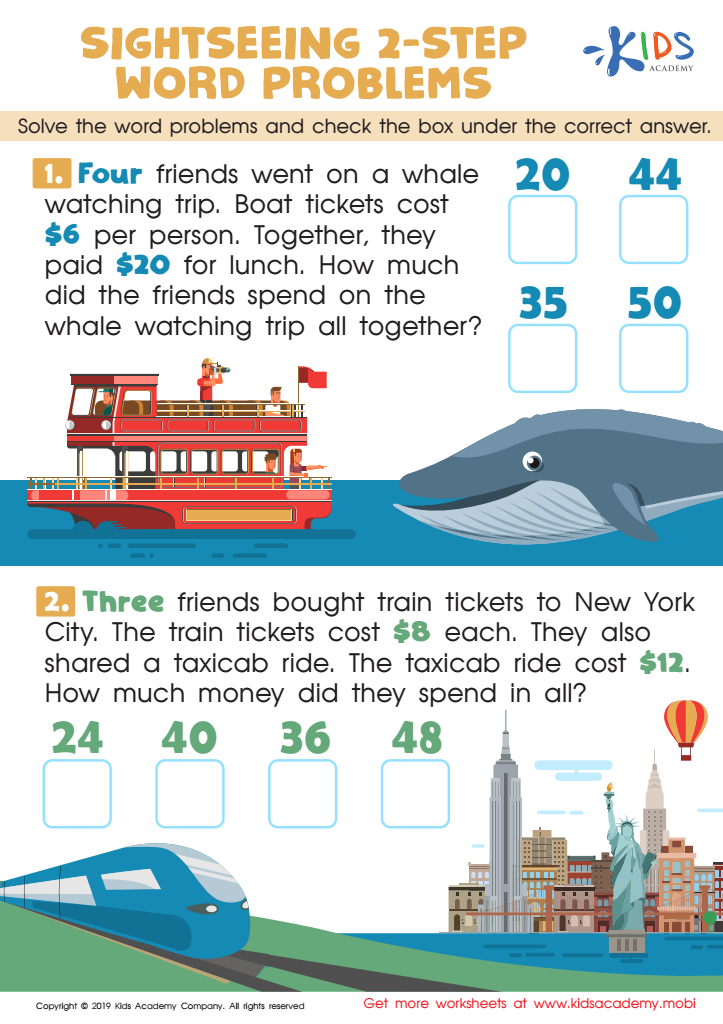

Sightseeing 2-Step Word Problems Worksheet
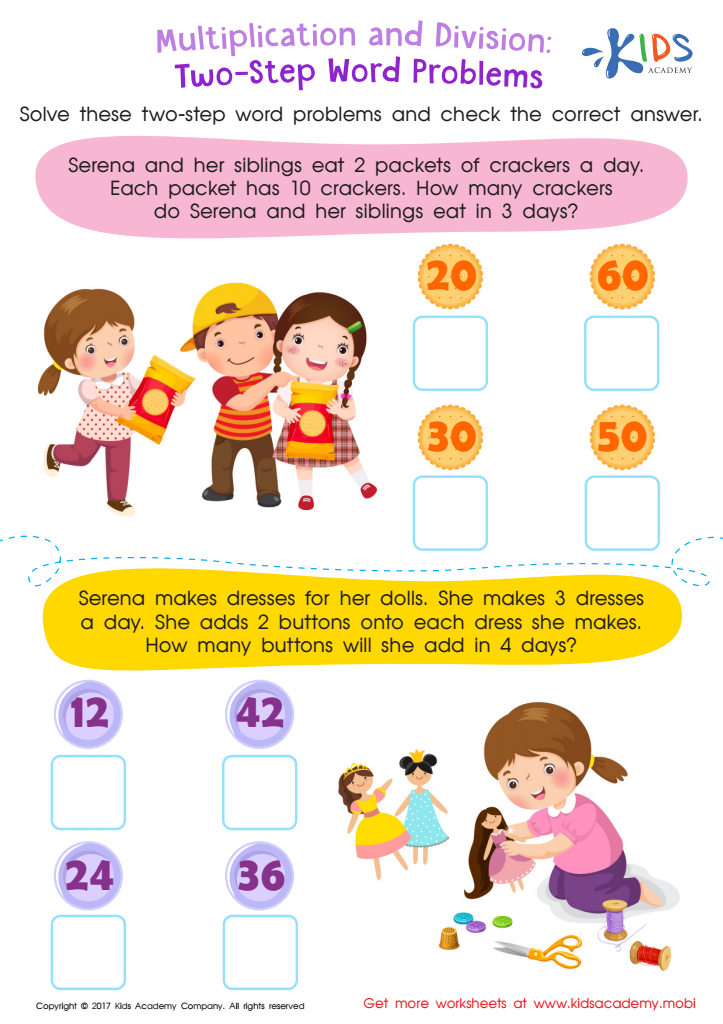

Two Step Word Problems Worksheet
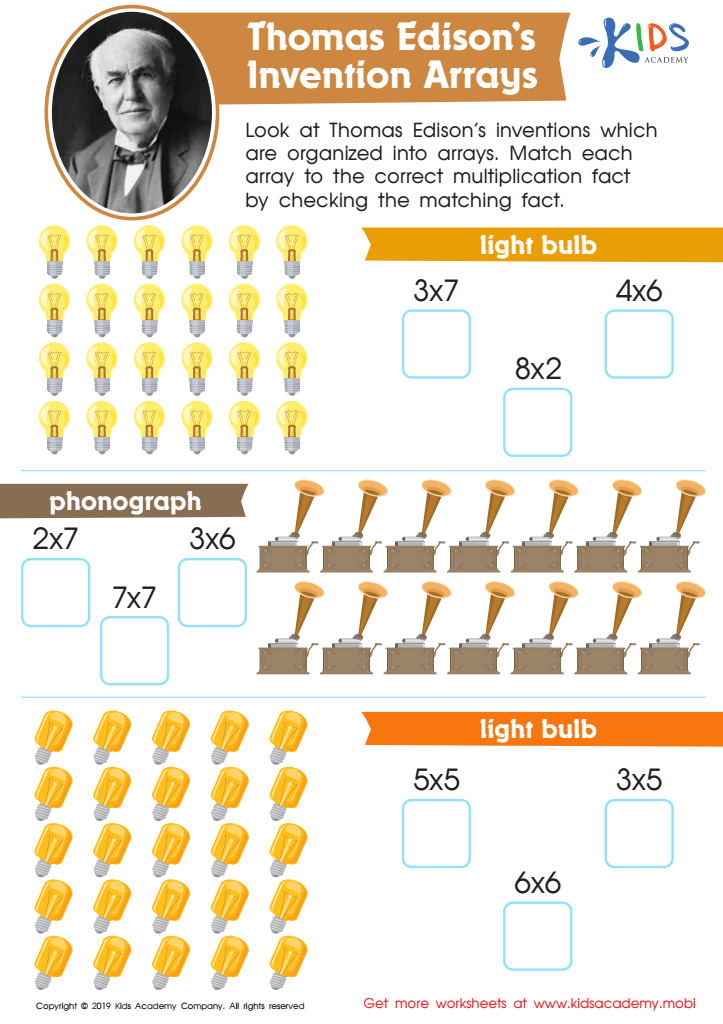

Thomas Edison’s Invention Arrays Worksheet
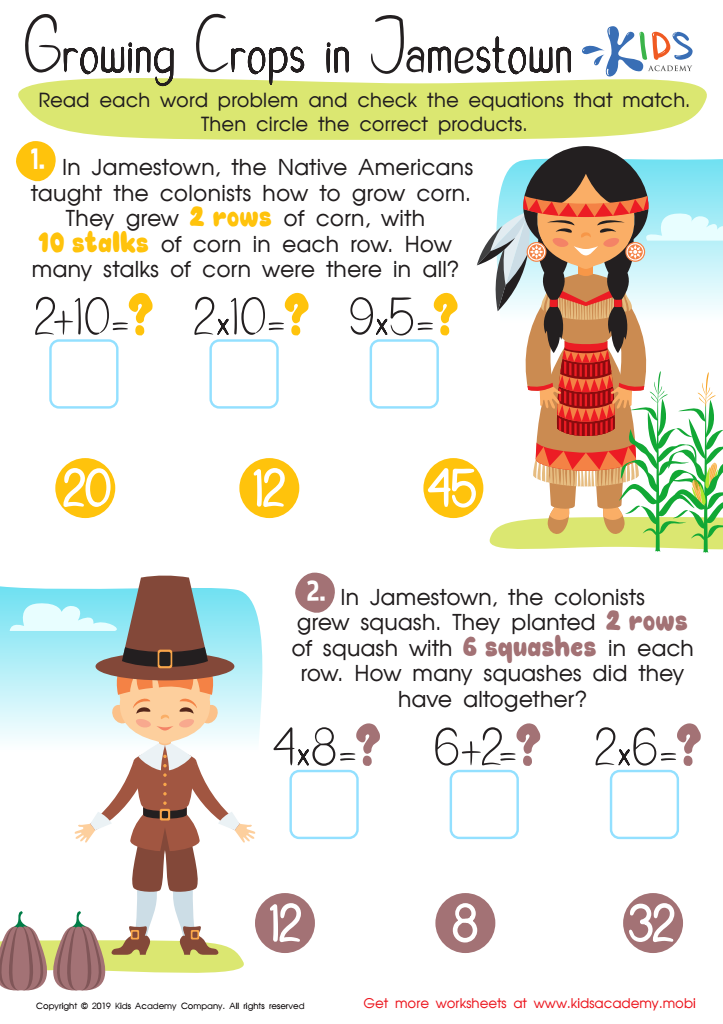

Growing Jamestown Worksheet
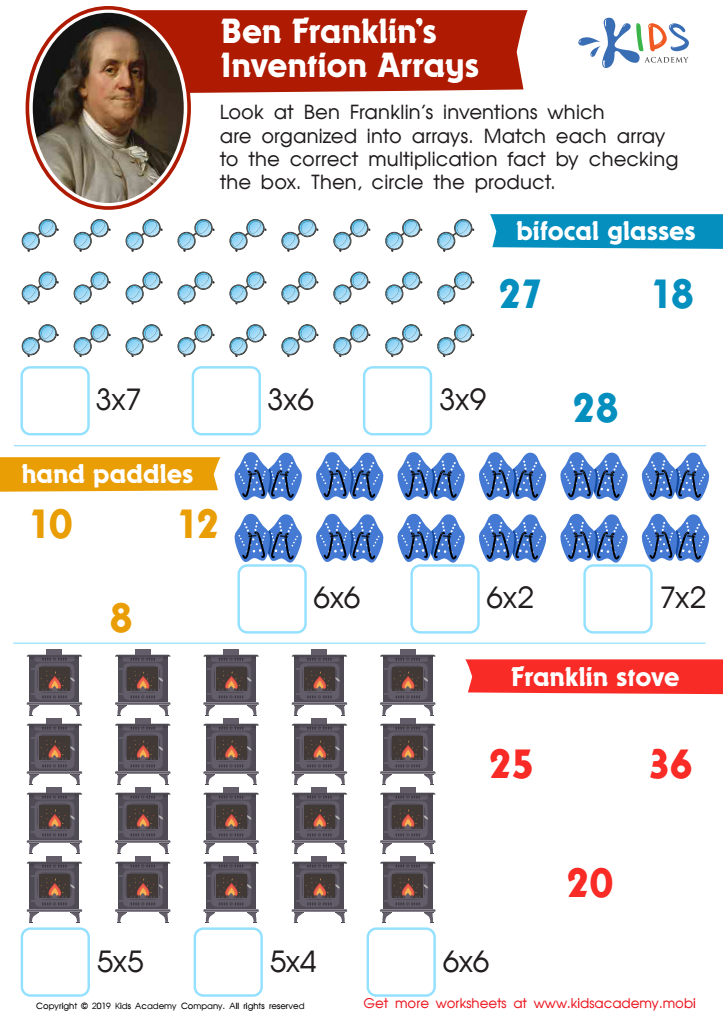

Ben Franklin’s Invention Arrays Worksheet
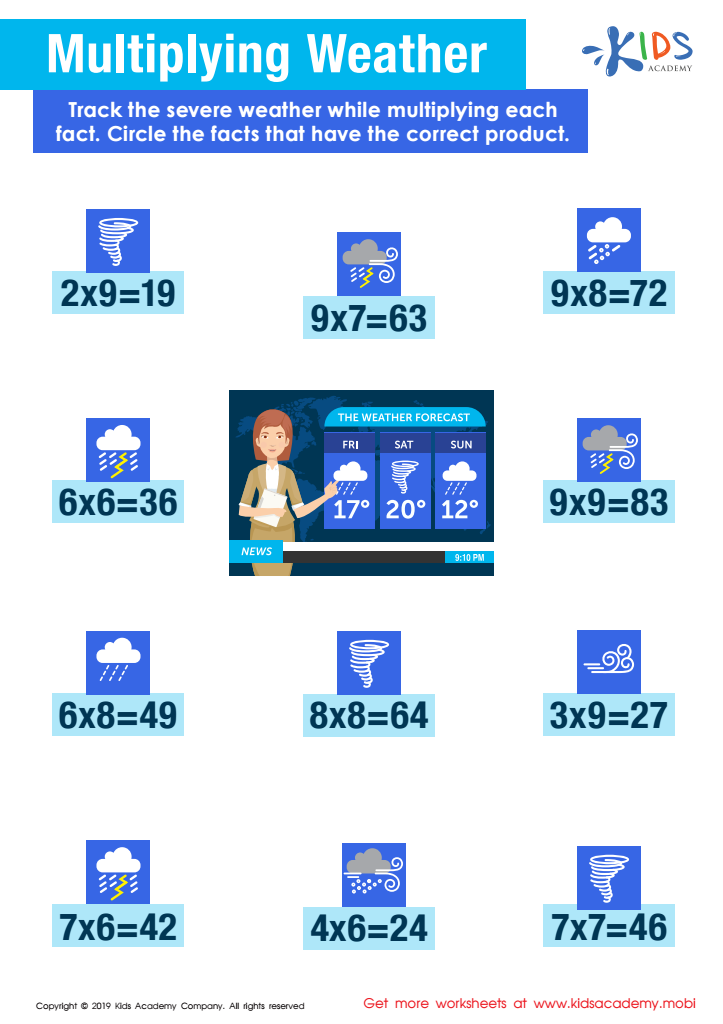

Multiplying Weather Worksheet
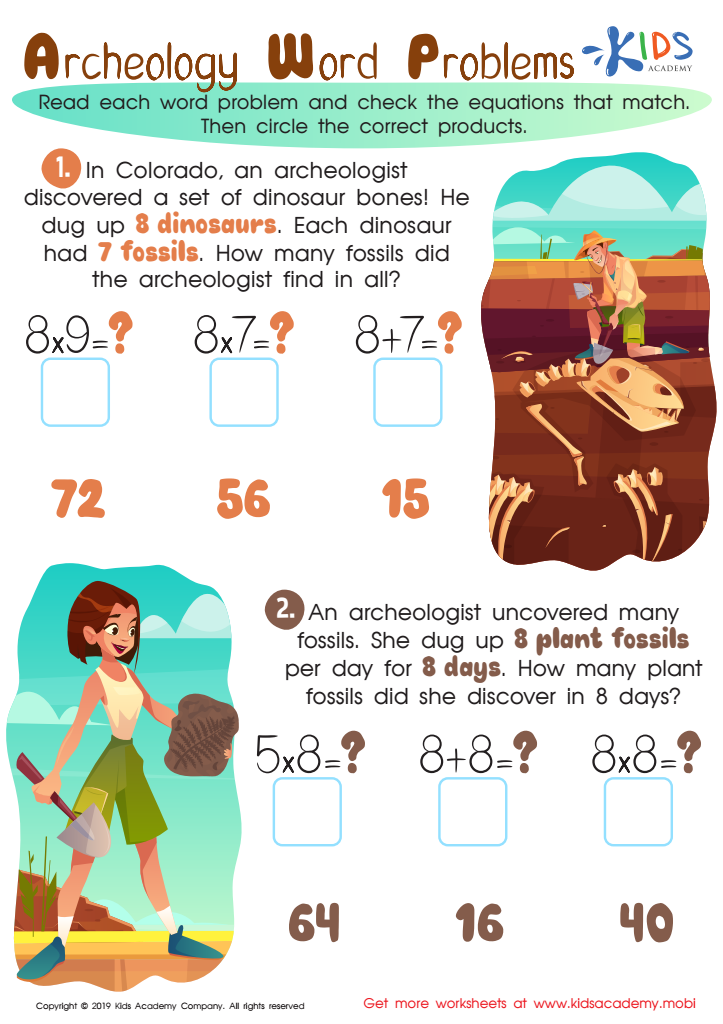

Archeology Word Problems Worksheet
Parents and teachers should care deeply about reading comprehension and multiplication for 8-year-olds because these skills form the foundation for future academic success and daily life activities. Reading comprehension is critical as it enables children to understand and process information, which is essential for learning across all subjects. When children can grasp what they read, they become better problem solvers and thinkers, improving their ability to follow instructions, understand stories, and engage meaningfully with the world around them.
Multiplication, on the other hand, is a core mathematical skill that underpins many higher-level math concepts. By mastering multiplication at an early age, children develop confidence and ease with numbers, which aids in their understanding of more complex mathematical operations such as division, fractions, and algebra. This not only boosts their math performance in school but also equips them with critical thinking skills that are invaluable in real-life situations, like budgeting, cooking, and even playing certain games.
Both reading comprehension and multiplication reinforce each other in the learning process; strong reading skills can help children better understand math problems, and vice versa. Ensuring that 8-year-olds build these competencies requires consistent encouragement and practice, as well as a recognition of their long-term benefits for the child's overall cognitive and personal development.
 Assign to My Students
Assign to My Students





















